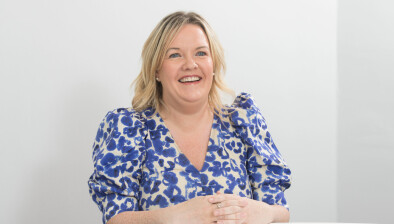Tom Dorner and Stuart Brown: European equity income can help in an uncertain world
Tom Dorner and Stuart Brown, managers of the ASI Europe ex UK Income Equity fund, which is run by abrdn, discuss how European equity income can offer help in an uncertain global market.

Tom Dormer and Stuart Brown
2021 was great for equity investors. The strong economic recovery from Covid-19 supported significant positive earnings revisions and growth in dividends. There was some pressure from supply chain constraints and elevated commodity prices, but overall equities delivered excellent returns. European equities rose 26% and returned the best performance relative to ACWI ex USA in 20 years.
The turbulent start to 2022 reminds us of the unusual market conditions in which we operate. In the first few trading days, we saw the most severe rotation ever from ‘growth’ into ‘value’ stocks. Global debt levels are at historic highs. A recent spike in US bond yields has reduced the amount of negative yielding bonds to a mere $11 trillion globally. The impact of Covid-19 lingers. However, many now hope the Omicron variant will remain benign, allowing the world to move from pandemic to endemic status. So, while the prospects for equity markets are good, investors need to be careful about the potential for volatility during 2022.
There is plenty to be optimistic about in 2022. The economy continues to normalise and there’s even increasing likelihood that fans can attend the Football World Cup in person. That said, we also think investors face two big uncertainties that could significantly impact returns.
First, will current elevated levels of inflation accelerate further or settle back to more manageable levels? Many of the pressures stemming from supply chains or input costs will likely prove transitory. However, there are other drivers of inflation. Notably higher energy costs, which may be structural in nature and could lead to a more inflationary regime than in the past.
Second, how will policymakers respond to the current environment in terms of interest rates and monetary support? The US Federal Reserve has already started tapering its Quantitative Easing program. It is also expected to raise rates four times in 2022. Nonetheless, given that policy support has been such an important driver of asset prices, the potential for severe market moves, either way, seems high.
Elevated inflation and uncertainty around policy response suggest to us that a balanced approach that captures both growth and downside protection will be key to delivering attractive risk-adjusted returns in 2022.
We think the prospects for European equities in 2022 remain good. This is supported by a combination of favourable corporate earnings prospects, continued policy support (particularly compared with US) and valuations that are attractive relative to other regions and asset classes.
European dividends recovered strongly in 2021 – far outstripping the rebound that followed the global financial crisis. Similarly, the prospect for additional capital returns has meaningfully increased, as demonstrated by a number of European financials in late 2021. We are therefore positive on the outlook for European dividends in 2022.
The level of yield available in Europe remains an extremely attractive bedrock of total return for investors. Furthermore, we think equity income investing can provide investors with attractive risk-adjusted total returns.
In our opinion, European equity income is well-positioned in the current environment of both low nominal yields and rising inflation. For yield-hungry investors, it certainly compares favourably to the fixed income market. There is also a wealth of companies that grow their dividends at attractive rates, helping investors address inflationary risks. For example, we think financials, utilities and energy should continue to provide positive earnings momentum relative to the wider market.
Considering the strength of the economic growth and corporate earnings environment, it’s perhaps surprising that ‘growth’ outperformed ‘value’ in factor terms in 2021. Many market commentators favour ‘value’ stocks for 2022. However, the success of this positioning will depend on the outcome of inflation and policy discussed above.
To close, it’s worth highlighting that dividend-paying companies in Europe have delivered extremely attractive risk-adjusted returns over the long term. Against this backdrop, we would advocate a balanced approach to investing.







